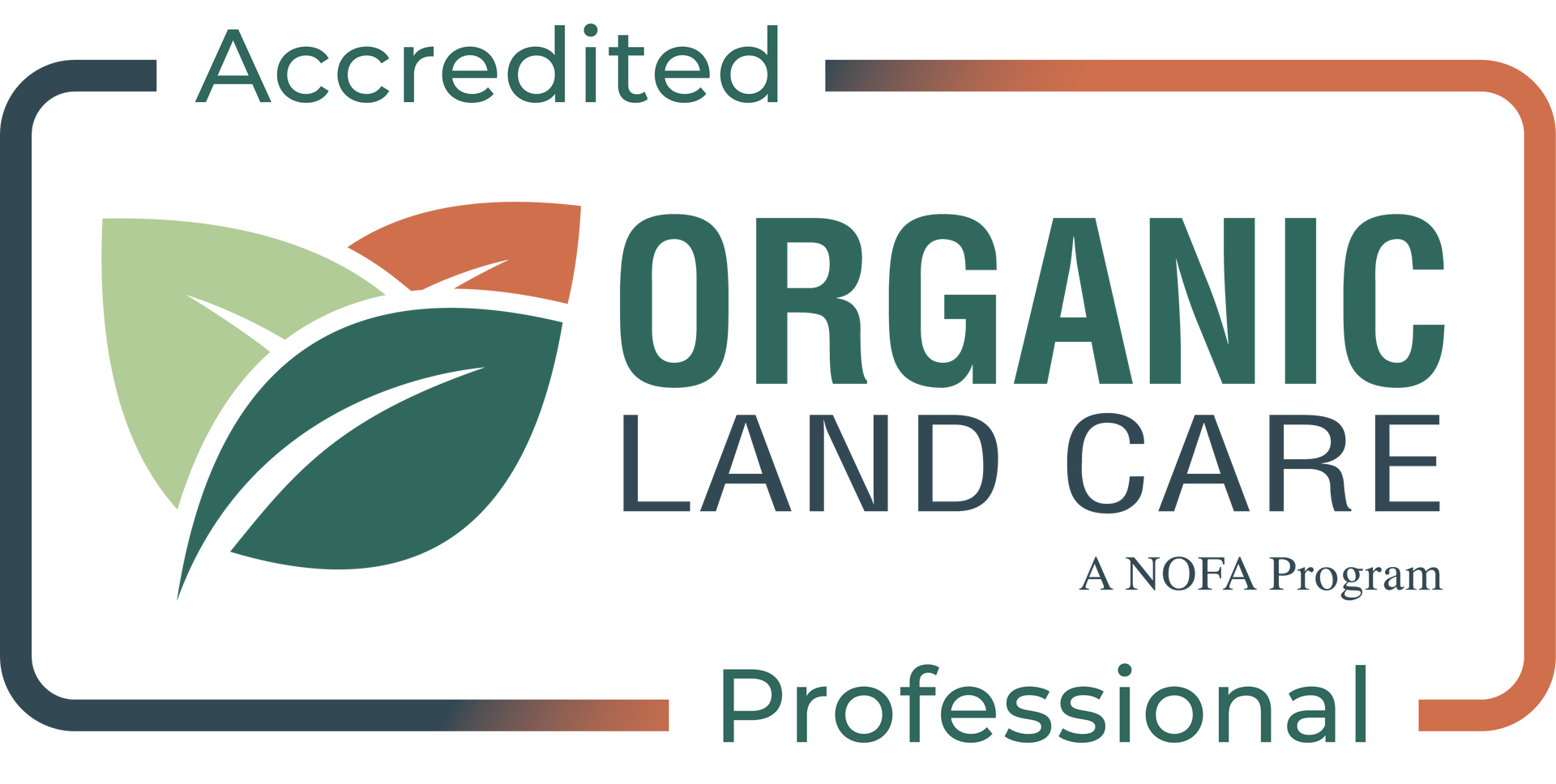
Defining Organic Landscaping
Most folks understand what it means to be considered organic in an agricultural context: many chemicals aren't permitted, certain techniques are required, and there is a governing body that regulates the use of the term "organic."
Organic land care is a bit more nebulous. There is no central governing body that regulates terminology or grants status. However, there is one nationally-recognized organization that took the lead in developing organic Land Care standards and creating an accreditation process. I discuss this more below.
Anyone currently paying for "organic" lawn or landscape services should feel entitled to hold their provider accountable. A provider should be willing and able to talk about every aspect of their organic offerings and be able to justify using the term "organic." One easy way to know if they are truly organic is to check for their accreditation.
The Standards for Organic Land Care
We're not flying blindly or calling our work "organic" without justification. The Northeast Organic Farming Association, the first major organization to tackle the establishment of organic landscape standards, publishes a guide to the standards. It's a major part of the training for those of us that went through the organic program, but is also a useful tool for homeowners or business property managers. Find it at: https://nofa.organiclandcare.net/about-organic-land-care/the-standards/
Basic Principles
Climate change, invasive species, and decreasing biodiversity are all top of mind for us here at Tender Earth. We blend these concerns with a nonstop drive to make landscapes attractive. Our values push us to look for battery alternatives to gas equipment, local inputs for lawn care regimens, and native plant-heavy designs.
ABOUT US
Each property is unique...
...and each property's turf area should only receive the nutrients, chemical treatment, or microbial food it needs in order to thrive.
One key aspect of an organic lawn care program is a soil test. Before we craft a care regimen for your property, we perform a site assessment, collect soil samples to send off to a testing lab, interpret the results, and present you with a plan.
A customized plan eliminates unnecessary applications, wasteful over-applications, and often saves money and resources over time.
Holistic Care and Principles
It may seem counter-intuitive for a landscape maintenance company, but one of the goals of organic landscaping is to gradually decrease the inputs needed for the landscape. If someone is interesting in transitioning from a 5-step synthetic chemical lawn program, an organic transition may see 4 applications for the next two years, followed by a couple of years of applications only to improve the soil microbial life to the point where the lawn keeps itself lush and green with no inputs and simply an aeration every third year.
Even if we make lawn applications on your property obsolete, we'll still be available to meet your pruning needs and do spring and fall clean-ups!
